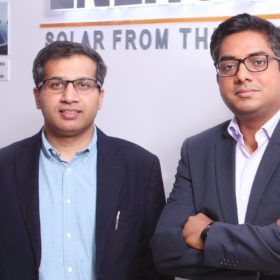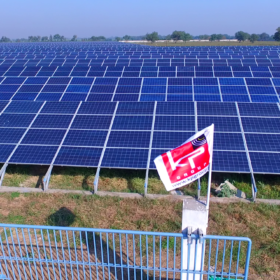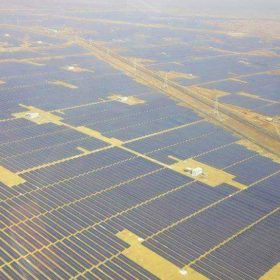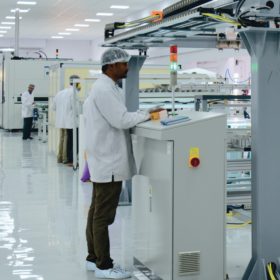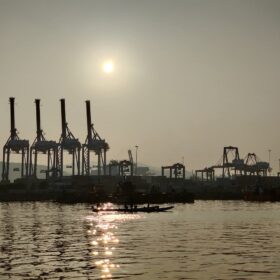White paper sums up e-transport policy progress across India
Range anxiety continues to be an obstacle to electric vehicle take-up but the nation’s willingness to embrace car-sharing and other workarounds offers plenty of promise to the sector, according a World Economic Forum report.
Interview: SunSource Energy says regulatory uncertainty is solar industry’s biggest challenge
The disparity between central and state government renewables policies must be resolved and renegotiating signed PPAs is an absolute no-no, according to the solar business’ bosses.
Andhra Pradesh regulator approves solar power tariffs
The latest blow in the political battle between clean energy project developers and an anti-renewables state government has seen the electricity regulator order power distribution companies to honor PPAs signed after a public tender.
ICRA downgrades 1.9 GW of wind, solar projects amid headwinds
Continuing delays in payments from utilities, regulatory uncertainty on tariff matters and tight financing have hit the industry hard.
Rajasthan tenders for 61 solar operated water pumping systems
The selected bidders are required to install and commission solar-based water pumping systems in various villages and towns of Jaipur district. Bidding closes on November 5.
CEL tenders off-grid solar in 4 states
The hybrid solar plants (with battery bank) shall come up at 34 railway station sites in the 4 states of Uttar Pradesh, Rajasthan, Assam and Bihar. Bidding closes on October 30.
Captive solar plants, a lucrative proposition for growing MSMEs
By going for captive solar plants, MSMEs can not only contribute in addressing the challenge of global warming but also generate additional cash flows to their business. Ample funding is available for them to make the switch.
AC Energy and UPC Solar form new JV for Asia Pacific
The joint venture company targets the construction of over 1 GW portfolio in the next few years, with an initial focus on India, South Korea and Taiwan.
Assam tenders for installation of solar powered tube wells
A total of 476 tube wells are to be installed under four packages in districts under different divisions—Barpeta (100+80), Goalpara, Dhubri and Mankachar (151), and Kokrajhar (145). Bidding closes on November 1.
Manufacturing-linked solar tender scaled up to 7 GW
Solar generation capacity aggregating to 7 GW—as against 6 GW earlier—will now be awarded against setting up of 2 GW of annual manufacturing capacity. Tariff ceiling has also been increased to Rs2.93/kWh, from Rs2.75, for a period of 25 years. Bids can be submitted till October 31.

